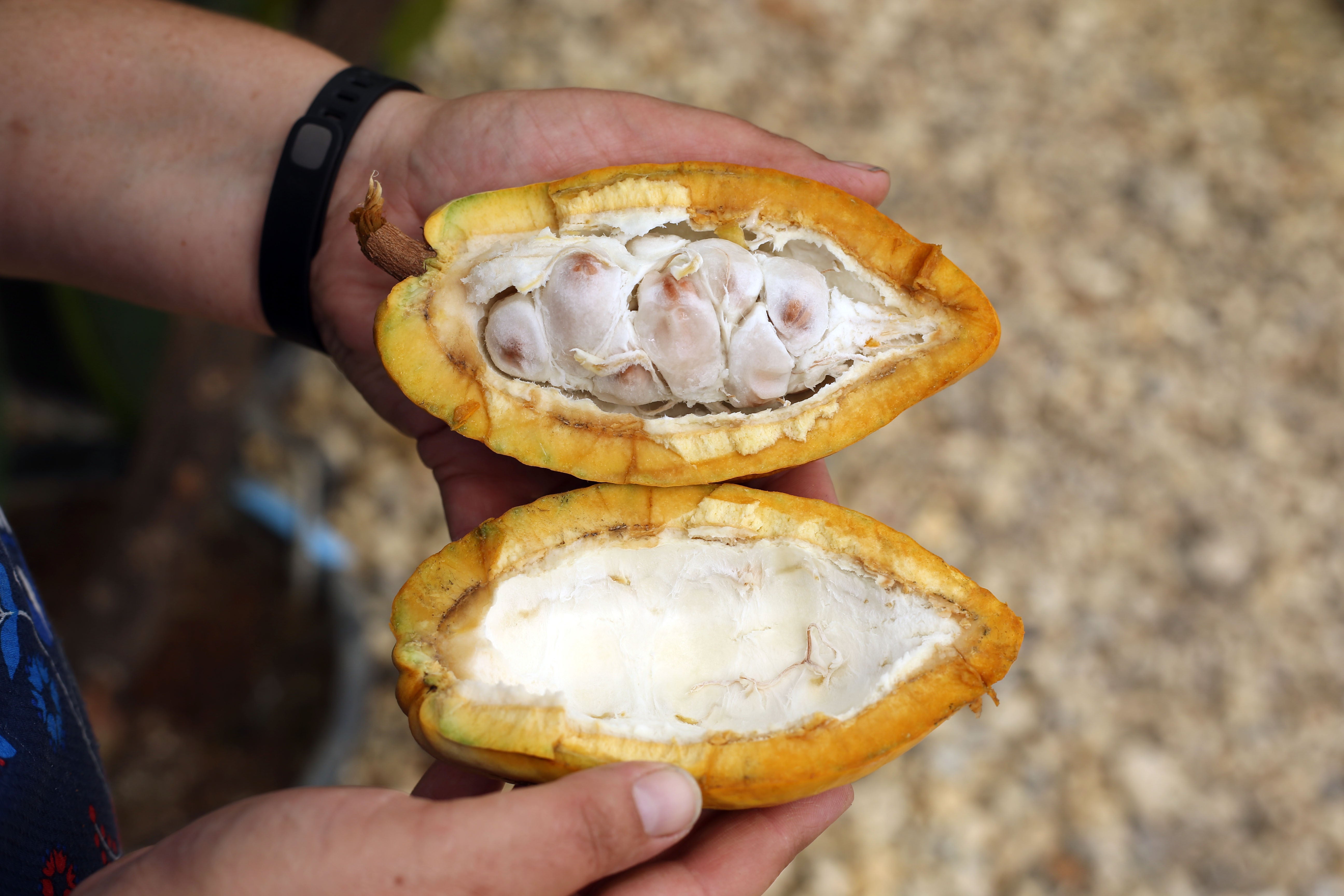Nestle, Mars and Hersey accused of ‘using child labour to get cheap cocoa’ in new court papers
Seven major cocoa companies ‘should have known’ about alleged child labour in their supply chains, court papers argue

Your support helps us to tell the story
From reproductive rights to climate change to Big Tech, The Independent is on the ground when the story is developing. Whether it's investigating the financials of Elon Musk's pro-Trump PAC or producing our latest documentary, 'The A Word', which shines a light on the American women fighting for reproductive rights, we know how important it is to parse out the facts from the messaging.
At such a critical moment in US history, we need reporters on the ground. Your donation allows us to keep sending journalists to speak to both sides of the story.
The Independent is trusted by Americans across the entire political spectrum. And unlike many other quality news outlets, we choose not to lock Americans out of our reporting and analysis with paywalls. We believe quality journalism should be available to everyone, paid for by those who can afford it.
Your support makes all the difference.Seven of the world’s largest cocoa companies have been accused of using child labour so they can “continue to benefit from cheap cocoa” in new legal papers.
The lawsuit has been brought by eight Malian citizens who claim they were trafficked as children to the Cote D’Ivoire to work on cocoa plantations.
Nestle, Cargill, Hershey, Olam, Mars, Mondelez and Barry Callebaut are named as defendants in the case, brought in Washington DC, and a newly filed opposition brief alleges that they formed a “venture to allow them to continue benefitting from cheap cocoa harvested by forced child labour”.
The cocoa industry has faced allegations that young children are being used to work on farms harvesting cocoa beans.
A 2020 study by the University of Chicago found that 1.56 million children are harvesting cocoa today, with the main countries for production being the Cote D’Ivoire and Ghana.
Cote D’Ivoire is responsible for producing around 40 per cent of the global supply of cocoa.
Major cocoa companies have all made pledges to tackle the issue of child labour within their supply chains. They argue that there is not sufficient evidence to connect them to the abuse allegedly suffered by the eight plaintiffs.
However, lawyers are arguing that the companies banded together to make it look like they were trying to tackle the problem but they continued to profit from forced child labour instead.
Terence Collingsworth, from International Rights Advocates, the lawyer who is bringing the civil action against the cocoa companies, told The Independent: “These companies are running a war on two fronts. They are telling the public; we’re working with cocoa farmers, we are giving them schooling and money, we’ve got this under control.
“Then they stand up in court and say we’re just buying chocolate, we don’t have anything to do with what’s going on there. In their most recent filing, they say they are no different from a consumer of a chocolate bar.”
Court papers filed last month allege that the plaintiffs, all of whom were under 16 at the time of their recruitment, “were trafficked from Mali and forced to work on cocoa plantations in Cote D’Ivoire that supplied to defendants”.
Legal documents describe the workers being constantly bitten by insects, wounded from machete accidents, and some working for years without being paid.
The case is being brought under the Trafficking Victims Protection Reauthorisation Act (TVPRA) of 2017. This act includes a “should have known” negligence standard, which means organisations can be held accountable for trafficking if it can be shown that they should have known that abuse was occurring, even if they did not directly know about it.
International Rights Advocates have proposed a broader reading of the TVPRA than the chocolate companies accept.
The plaintiff’s lawyers are arguing that the companies have been “collaborating within formal structures, including the World Cocoa Foundation … to create, protect, maintain their system of cocoa production dependent on child slavery”.
The cocoa companies dispute this. An Olam spokesperson said they “vehemently deny any wrongdoing and believe there is no legal basis for this case”. They added that there was zero tolerance for forced or slave labour in their supply chain and that “if we were to identify any instances, we would immediately take action”.
Mars said they do not comment on pending litigation but added that the company believes that “child or forced labour has no place in the cocoa supply chain”. They pointed to their efforts to “address the root causes of this complex issue”.
A Nestle spokesperson said: “Child labour is unacceptable, that is why we are working so hard to help prevent it. We remain unwavering in our dedication to combatting child labour in the cocoa industry and to our ongoing work with partners in government, NGOs and industry to help tackle this complex, global issue.”
Barry Callebaut said that it had committed to eradicating child labour from its supply chain by 2025. A spokesperson said: “The lawsuit brought forward by International Rights Advocates concerns the rare practice of trafficking children to work on farms, which the Ivorian and Ghanaian governments, together with industry, are actively combating. Barry Callebaut disputes the allegations in this lawsuit.”
Hershey said they did not comment on pending litigation. Mondelez did not respond to request for comment.
Cargill said the companies will be filing their response to the opposition’s arguments on 19 November.